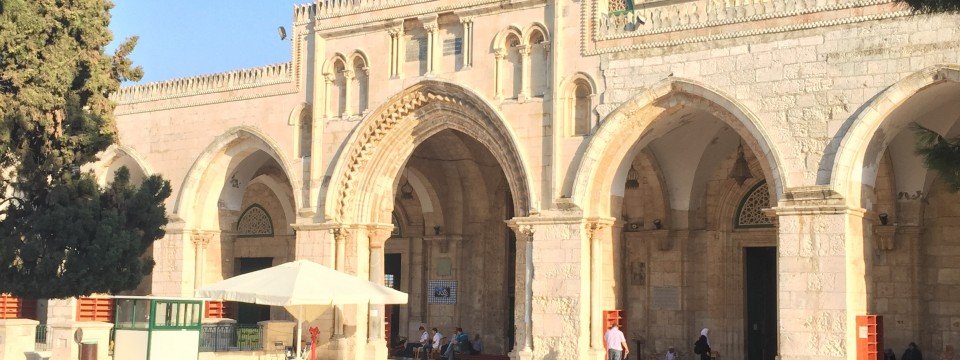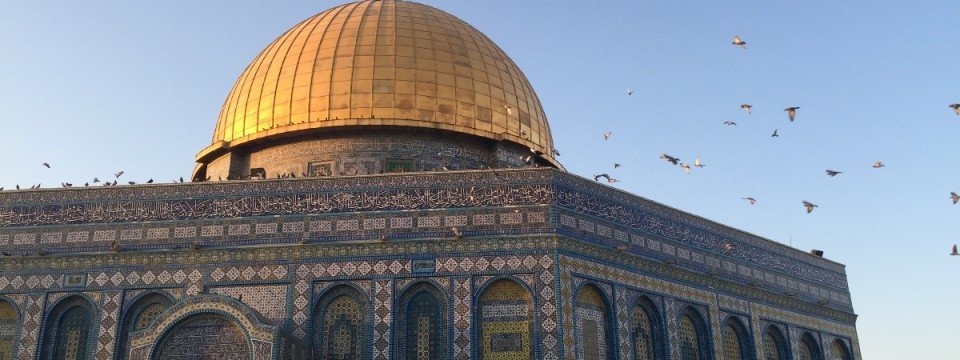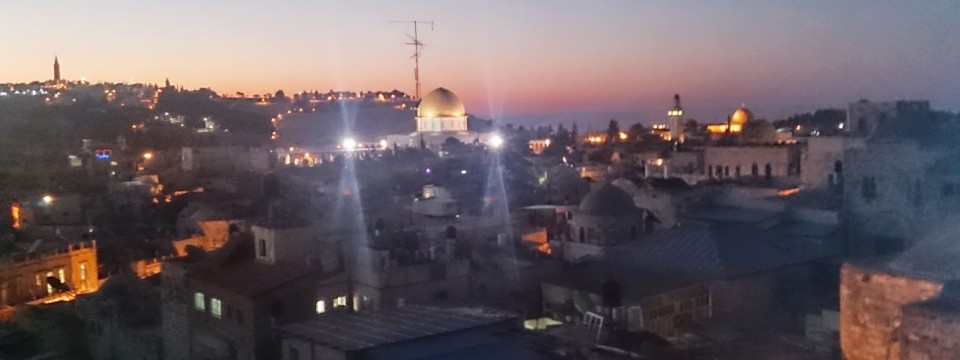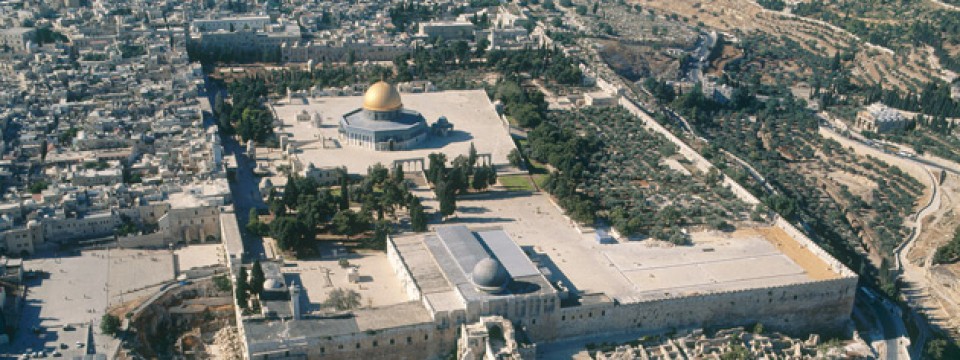Ramadan:
It is no exaggeration to write that spending Ramadan in Al Masjid Al Aqsa is an amazing and unforgettable experience.
Not only is it a wonderful opportunity to get lots of reward by visiting one of the most blessed Masaajid in the most blessed of all months, but also, the sense of tranquility and inner peace that fills one’s heart whilst spending time in Al Masjid Al Aqsa and in its vast and expansive courtyards, is something indescribable at times.
I personally compare it to being in the blessed city of Madinah just because of the stillness and serenity that one experiences. When you add to this the opportunity to pray your salaah in the first few rows behind the imam (due to the fact that the number of visitors to Al Aqsa are still relatively low compared to Makkah and Madinah), as well as the opportunity to hear some of the most beautiful voices reciting Quran during the taraweeh prayers and the qiyaam/tahajjud prayers – it really is a wonder that the Muslims do not flock here in millions during this special month.
Basic suhoor and iftaar meals are usually handed out in the Masjid by charities around the time of tahajjud and Maghrib. But rest assured – with the generosity of the Palestinians, even if you arrive late and forget to bring some food, you will not go hungry. The beauty of the Ummah really shines through in this Masjid – and especially in Ramadan.
I’tikaf:
Observing I’tikaf in Al Masjid Al Aqsa is a truly unique, blessed, and wonderful experience. Every year, approximately 200-300 foreign visitors (from a variety of countries including UK, USA and South Africa) observe the practice of sitting in Sunnah I’tikaf for the final ten nights of Ramadan in Al Masjid Al Aqsa. They are joined by several thousand more (comprising foreign visitors and local Palestinians) who observe the practice of sitting for some of these blessed nights in Nafil I’tikaf. Usually on the night of the 27th Ramadan, there is in excess of 50,000 people sitting in Nafil I’tikaf in Al Masjid Al Aqsa.
The difference between Sunnah I’tikaf and Nafil I’tikaf is that a Sunnah I’tikaf is one that starts on Maghrib of 20th Ramadan, and ends at Maghrib on the sighting of the crescent on either 29th or 30th Ramadan. A Nafil I’tikaf can be performed for any period of time (i.e. between Zuhr and Asr Salaah) – and is not limited to Ramadan.
The benefits of sitting in I’tikaf are numerous and vast – and this is especially the case in Ramadan, where it allows the individual the oppprtunity to seek out the blessed night of Laylatul Qadr (which Allah has mentioned in the Holy Quran as being “better than a thousand months”) in a state of worship, tranquility and inside the most blessed of places (i.e. Masjid).
Every day, charities distribute a basic suhoor and iftar parcel (fruits, bread, yoghurt, water etc) free to those sitting in I’tikaf. In addition, there is a great camaraderie amongst those in I’tikaf, and very often the ones who are observing a Nafil I’tikaf will go out into the Old City of Jerusalem before Maghrib to purchase foods for those in Sunnah I’tikaf.
To sit in I’tikaf in Al Masjid Al Aqsa, one can travel independently or via a tour group. Many tour groups arrange a Nafil I’tikaf experience in which they book accommodation near Al Masjid Al Aqsa for those on the tour, but encourage those on the tour to observe Nafil I’tikaf during the nights (if they wish), and sleep at the hotel after Fajr.
If you wish to sit in Sunnah I’tikaf, it is recommended that you pack the following items:
- Sleeping bag
- Pillow
- Inflatable mattress (if you are not able to sleep on a hard floor surface)
- Towel and tissues
- Medication and toiletries (inc hand sanitiser)
- Comfortable clothing (slippers/sandals recommended)
- Phone charger and adaptor
- Local Sim card and credit
- Plastic bags for dirty clothes and easy storage
- Easy to eat food items (tea/coffee/cereals/bars/protein shakes)
- V small travel kettle (although this may be confiscated by security)
- Plastic cutlery
- Quran, Islamic books, and recitations/beneficial talks on phone
- Money for iftar meals (if you would like others to go out and purchase for you) and to give as sadaqah.




